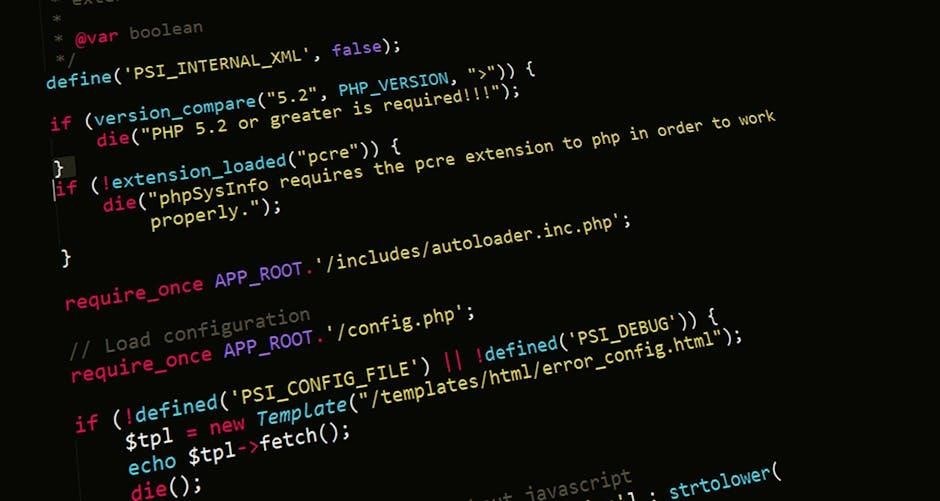The Missouri Charge Code Manual is a critical resource for law enforcement‚ ensuring accurate criminal records and enhancing officer safety through standardized charge codes.
Overview of the Missouri Charge Code Manual
The Missouri Charge Code Manual is a comprehensive guide maintained by the Missouri State Highway Patrol‚ providing standardized codes for criminal offenses. It includes detailed definitions‚ classifications‚ and instructions for accurate record-keeping. The manual ensures consistency in law enforcement reporting‚ aiding in criminal history maintenance and legal processes. Regular updates reflect legislative changes and technological advancements‚ ensuring compliance with state and federal standards. It is a vital tool for law enforcement‚ legal professionals‚ and the public.
Importance of Charge Codes in Law Enforcement
Charge codes are essential for efficient law enforcement operations‚ ensuring accurate and uniform reporting of crimes. They facilitate quick data entry‚ reduce errors‚ and enhance officer safety by providing clear offense classifications. These codes also aid in maintaining complete criminal history records‚ which are critical for background checks and legal proceedings. By standardizing crime reporting‚ charge codes promote consistency across agencies‚ enabling better data analysis and resource allocation. They are a cornerstone of effective law enforcement and criminal justice systems.

History and Development
The Missouri Charge Code Manual was established in the 1960s to standardize crime classification‚ ensuring accurate reporting and legal processes. It has evolved to reflect modern law enforcement needs.
Origins of the Missouri Charge Code Manual
The Missouri Charge Code Manual originated in the 1960s as a response to the need for standardized criminal offense classification. It was developed by the Missouri State Highway Patrol to ensure uniformity in reporting and recording crimes across the state. This system aimed to enhance law enforcement efficiency and accuracy‚ providing a consistent framework for criminal data management. The manual has since become a cornerstone for maintaining precise criminal history records.
Evolution Over the Years
The Missouri Charge Code Manual has undergone significant updates to reflect legislative changes and technological advancements. Initially focused on basic offense classification‚ it expanded to include detailed coding for accuracy in criminal records. The 2023 updates introduced new codes for emerging offenses and streamlined data entry processes. Digital access and quarterly revisions ensure the manual remains current‚ adapting to law enforcement needs and legal requirements.

Purpose and Function
The Missouri Charge Code Manual ensures accurate criminal records‚ enhances officer safety‚ and standardizes charge codes for efficient law enforcement operations and legal compliance.
Enhancing Law Enforcement Safety
The Missouri Charge Code Manual plays a vital role in enhancing law enforcement safety by providing standardized codes that ensure accurate criminal history records. These codes enable officers to access critical information swiftly‚ aiding in informed decision-making during operations; By maintaining consistency and clarity‚ the manual supports officers in identifying potential threats and ensuring public safety effectively across the state.
Key Functions of Charge Codes
Charge codes in the Missouri Charge Code Manual serve multiple essential functions; They ensure accurate and complete criminal history records‚ which are crucial for background checks and legal proceedings. These codes also enhance officer safety by providing quick access to critical information during law enforcement operations. Additionally‚ they facilitate efficient data management and communication among agencies‚ ensuring consistency and reducing errors in reporting and tracking criminal activities statewide.
Role in Criminal History Records
Charge codes play a vital role in maintaining accurate and detailed criminal history records in Missouri. They ensure that offenses are tracked consistently‚ providing a reliable source for legal proceedings and background checks. By standardizing how crimes are recorded‚ charge codes help law enforcement and courts access essential information efficiently. This consistency is crucial for upholding justice‚ ensuring transparency‚ and supporting informed decision-making across the criminal justice system.
Structure and Organization
The Missouri Charge Code Manual is structured to ensure clarity and efficiency‚ with standardized codes organized by offense type‚ aiding law enforcement in accurate record-keeping and legal processes.
Classification of Offenses
The Missouri Charge Code Manual categorizes offenses into misdemeanors and felonies‚ with detailed subcategories for specific crimes‚ ensuring precise tracking and legal consistency. Each code reflects severity and legal implications‚ aiding law enforcement and courts in uniform case handling and record-keeping. This structured approach enhances data retrieval and ensures accurate criminal history records‚ which are vital for legal proceedings and public safety. The classification system is regularly updated to align with legislative changes and law enforcement needs.
Formatting and Coding System
The Missouri Charge Code Manual utilizes a standardized alphanumeric system to classify offenses‚ ensuring clarity and consistency. Each charge code is uniquely assigned to represent specific crimes‚ facilitating accurate tracking and reporting. The system is designed to be intuitive‚ with codes organized to reflect offense severity and legal categorization. Regular updates ensure the coding system aligns with legislative changes and law enforcement requirements‚ maintaining its effectiveness in criminal justice processes. This structured format aids in efficient data management and retrieval.
Examples of Charge Codes
Examples from the Missouri Charge Code Manual include codes for theft‚ assault‚ and traffic violations. For instance‚ “306.109” pertains to alcohol possession or use‚ while “301.703” relates to all-terrain vehicle registration. These codes are specifically designed to provide clear references for law enforcement and legal professionals. They ensure uniformity in recording and processing criminal offenses‚ aiding in efficient case management and accurate data retrieval for historical records and legal proceedings.

Recent Updates and Changes
The 2023 legislative changes introduced new charge codes‚ reflecting updated laws and technological advancements in law enforcement practices‚ ensuring the manual remains relevant and effective.
2023 Legislative Changes
The 2023 legislative updates to the Missouri Charge Code Manual introduced new codes to reflect modern crimes and law enforcement needs. These changes included revised penalties for certain offenses‚ updated definitions‚ and the addition of technology-related charges. The updates aim to enhance accuracy in criminal records and improve officer safety. Legislative adjustments also focused on aligning charge codes with federal standards‚ ensuring consistency across jurisdictions. These modifications were implemented to address emerging legal challenges and maintain public trust in law enforcement practices.
Technological Advances in Charge Code Management
Recent technological advancements have streamlined charge code management in Missouri‚ with digital platforms enhancing accessibility and accuracy. The Missouri State Highway Patrol now offers online access to the Charge Code Manual‚ allowing real-time updates and cross-referencing. Automated systems improve data entry‚ reducing errors in criminal records. Additionally‚ mobile applications enable officers to quickly reference codes in the field. These innovations ensure law enforcement remains efficient and informed‚ leveraging technology to maintain public safety and uphold legal standards effectively.

Challenges and Controversies
Maintaining accuracy in criminal records and addressing privacy concerns remain key challenges‚ alongside ensuring legal compliance and transparency in charge code implementation and updates.
Accuracy in Criminal History Records
Accuracy in criminal history records is crucial for fair legal proceedings and public trust. The Missouri Charge Code Manual emphasizes precise data entry and regular audits to minimize errors. Errors can lead to wrongful convictions or dropped charges‚ undermining justice. The manual’s standardized coding system helps ensure consistency‚ but human oversight remains vital. Training programs and technological tools are continuously refined to maintain the integrity of these records‚ protecting both law enforcement and the public they serve.
Privacy Concerns
Privacy concerns surrounding the Missouri Charge Code Manual focus on safeguarding personal information within criminal records. Access to these records is restricted to authorized personnel to prevent unauthorized disclosure. Citizens have the right to review and correct their records‚ ensuring transparency and accuracy. However‚ balancing public safety with individual privacy remains a challenge. Security measures‚ including encryption and access controls‚ are implemented to protect sensitive data from breaches or misuse‚ maintaining public trust in the system.

Legal Implications
The Missouri Charge Code Manual impacts criminal procedure‚ ensuring due process and accuracy in legal proceedings. It influences sentencing and parole decisions‚ affecting individual rights and justice outcomes.
Criminal Procedure and Due Process
The Missouri Charge Code Manual plays a pivotal role in ensuring criminal procedure adheres to due process standards. By standardizing charge codes‚ it prevents errors in criminal records‚ ensuring fair legal proceedings. The manual’s accuracy guarantees that charges align with legal definitions‚ protecting individuals’ rights and preventing wrongful convictions. This system supports transparency and accountability‚ making it a cornerstone of Missouri’s justice system‚ where fairness and precision are paramount in every case.
Impact on Sentencing and Parole
The Missouri Charge Code Manual significantly influences sentencing and parole decisions by providing standardized codes that reflect the severity and nature of offenses. Accurate charge codes ensure that criminal histories are reliable‚ aiding judges in fair sentencing. For parole‚ consistent coding helps assess an offender’s suitability for release. This uniformity promotes justice system fairness‚ ensuring similar cases are treated alike‚ and supports informed decision-making by legal authorities.

Tools and Resources
The Missouri State Highway Patrol provides online access to the Charge Code Manual‚ including past editions and quarterly updates‚ ensuring users stay informed and compliant with current codes.
Missouri State Highway Patrol’s Role
The Missouri State Highway Patrol plays a pivotal role in maintaining and updating the Charge Code Manual‚ ensuring accuracy and compliance with legal standards. They oversee the implementation of charge codes across law enforcement agencies‚ providing training and resources to officers; The Patrol also manages the Criminal Records Repository‚ which stores and processes criminal history data. Their efforts ensure the manual remains a reliable tool for law enforcement‚ while also archiving retired charge codes for historical reference‚ promoting transparency and efficiency in law enforcement operations.
Accessing the Manual Online
The Missouri Charge Code Manual is accessible online through the Missouri State Highway Patrol’s website. Users can download current and past editions‚ ensuring easy reference for law enforcement and the public. The digital format enhances accessibility‚ allowing quick searches and updates. Quarterly updates are also available‚ reflecting legislative changes and system improvements. This online availability promotes transparency and efficiency‚ making it a vital resource for staying informed on charge codes and their applications in criminal justice processes.
Training and Education
The Missouri Charge Code Manual supports law enforcement training programs‚ ensuring officers can accurately apply codes and understand their implications for criminal justice processes and public safety.
Law Enforcement Training Programs
The Missouri Charge Code Manual is integral to law enforcement training‚ providing officers with detailed guidance on accurate code application. Regular workshops and online modules ensure officers understand the latest updates‚ promoting consistency in reporting and record-keeping. These programs emphasize the importance of precise charge code usage to maintain public safety and uphold legal standards. Continuous education ensures officers are well-equipped to handle evolving criminal justice challenges effectively.
Public Awareness Initiatives
Public awareness initiatives aim to educate citizens about the Missouri Charge Code Manual‚ fostering transparency and trust. These efforts include online resources‚ community workshops‚ and outreach programs. By understanding charge codes‚ the public gains insight into law enforcement practices and criminal records. Such initiatives promote accountability‚ ensuring citizens can access and interpret charge code information effectively. These programs also highlight the importance of accurate records in maintaining public safety and justice‚ bridging the gap between law enforcement and the community they serve.
Retired Charge Codes
Retired charge codes are discontinued codes archived for historical reference‚ ensuring access to past data for legal and research purposes through the Missouri Highway Patrol’s charge code manual web page.
Archiving and Accessing Historical Data
The Missouri Charge Code Manual archives retired charge codes for historical reference‚ ensuring access to past data for legal and research purposes. These codes‚ including municipal ordinance violations‚ are maintained over time and made available through the Missouri State Highway Patrol’s official website. This system ensures continuity and supports legal and research needs by providing a comprehensive record of all charge codes‚ both current and retired‚ in an organized and accessible format.

Public Access and Transparency
The Missouri Charge Code Manual ensures public access to charge code information‚ promoting transparency in law enforcement practices and criminal record management.
Availability of Charge Code Information
The Missouri Charge Code Manual is accessible online via the Missouri State Highway Patrol’s website‚ ensuring public access to charge code information. It includes current and retired codes‚ providing transparency in law enforcement practices. The manual is regularly updated to reflect legislative changes‚ offering a comprehensive resource for law enforcement‚ legal professionals‚ and the public. This accessibility promotes understanding and accountability‚ aiding in accurate criminal record management and historical research.
Requesting Criminal Records
Requesting criminal records in Missouri involves accessing the Charge Code Manual through the Missouri State Highway Patrol’s website. The manual provides detailed charge codes and instructions for accurate record interpretation. Individuals can submit requests for criminal records‚ which may require specific forms and fees. The process ensures transparency and accountability‚ aiding in legal proceedings and public access to information. Accuracy in record-keeping is crucial‚ as errors can impact legal outcomes and individual rights‚ emphasizing the need for precise charge code management. This system supports both law enforcement and public inquiries effectively.

FAQs and Common Questions
Frequently asked questions about the Missouri Charge Code Manual address understanding charge codes‚ correcting errors‚ and accessing records‚ providing clarity for public and law enforcement use.
Understanding Charge Codes
Charge codes are standardized identifiers used to classify criminal offenses in Missouri. They ensure consistency in law enforcement and legal processes‚ aiding in accurate record-keeping and efficient case management. These codes are crucial for maintaining detailed criminal histories‚ which are essential for background checks‚ sentencing‚ and parole decisions. Understanding charge codes helps both law enforcement and the public navigate the legal system more effectively‚ ensuring transparency and fairness in criminal proceedings.
Correcting Errors in Records
Citizens have the right to correct erroneous information in their criminal records. The custodian of the records must provide a method for amending inaccuracies. This ensures fairness and transparency‚ as incorrect data can impact legal proceedings‚ employment‚ and personal rights. Missouri’s system allows individuals to challenge and rectify mistakes‚ maintaining the integrity of criminal history records and upholding due process principles. Accurate records are vital for justice and public trust.
Future Trends
Missouri Charge Code Manual will integrate with national systems‚ enhancing data sharing and standardization. Technological innovations will streamline record management and improve real-time accessibility for law enforcement.
Integration with National Systems
The Missouri Charge Code Manual is expected to align with national databases‚ fostering seamless data sharing and uniformity across jurisdictions. This integration will enhance cross-state law enforcement collaboration‚ improving the accuracy of criminal records and aiding in federal investigations. Standardized charge codes will ensure consistency‚ reducing discrepancies and facilitating real-time access to critical information. This initiative will strengthen public safety efforts and support more efficient law enforcement operations nationwide.
Technological Innovations
Technological advancements are revolutionizing the Missouri Charge Code Manual‚ enhancing accessibility and efficiency. Digital platforms now allow law enforcement to access real-time updates‚ ensuring accuracy and compliance. Automated systems streamline data entry‚ reducing errors and improving record-keeping. AI-driven analytics support trend analysis and predictive policing. Secure cloud storage and multi-factor authentication protect sensitive information. These innovations not only modernize law enforcement operations but also strengthen the integrity of the criminal justice system‚ fostering trust and transparency.
Case Studies
Case studies highlight how Missouri Charge Codes have been pivotal in solving crimes‚ ensuring accurate record-keeping‚ and enhancing the efficiency of legal proceedings statewide.
Impact on Specific Cases
The Missouri Charge Code Manual has significantly influenced specific legal cases by ensuring accurate charge classification and documentation. This precision has led to fairer trials‚ reduced errors in criminal records‚ and enhanced transparency in legal proceedings. By standardizing charge codes‚ the manual has improved the efficiency of law enforcement and court operations‚ directly impacting case outcomes and public trust in the justice system. Its role in maintaining consistent and reliable criminal history records cannot be overstated.

Best Practices
- Ensure accuracy in charge code entry to maintain reliable criminal records.
- Regularly update knowledge on charge code changes through training programs.
- Conduct periodic audits to verify compliance with manual guidelines.
Ensuring Accuracy and Compliance
Accuracy in the Missouri Charge Code Manual is crucial for reliable criminal records and law enforcement safety. Officers must undergo regular training to stay updated on charge code changes. Agencies should conduct internal audits to verify compliance with the manual’s guidelines. Utilizing resources like the Missouri State Highway Patrol’s online manual ensures access to the most current information. Regular updates and cross-referencing with legal changes help maintain precision and adherence to legal standards‚ reducing errors in criminal history records.
Resources and References
The Missouri Charge Code Manual is available on the Missouri State Highway Patrol’s website‚ offering current and past editions for reference and guidance.
Additional Reading and Links
For further understanding‚ visit the Missouri State Highway Patrol’s website to access the latest Charge Code Manual and archived versions. The Criminal Records and Identification Division also provides detailed resources. Additional guides on charge code interpretations and historical data can be found on their official platforms. Retired charge codes and past manuals are available for reference‚ ensuring comprehensive access to both current and historical information.
